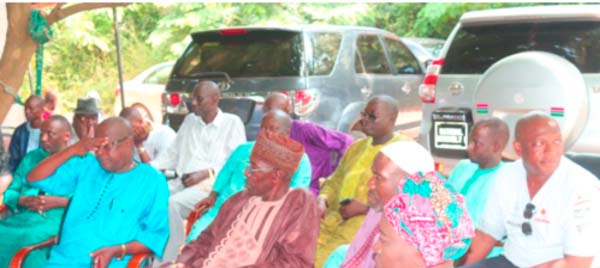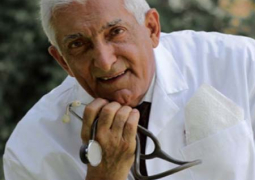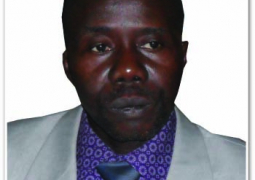
Members
of the Public Accounts and Public Enterprises Committees (PAC/PEC) of the
National Assembly Tuesday embarked on a field visit to World Bank-funded
project sites in the country.
Yesterday,
the lawmakers visited the Tanji Birds Reserve, where they were received by the
park manager, Sutai Sanneh, who expressed delight in receiving them.
Briefing
the legislators about the park, Sutai Sanneh said the park was funded by the
World Bank and the UNDP and, since inception, the park had attracted lots of
people from all over the world.
“We
have 25 different species of birds ranging from the Slender Relle gull, to
Royal Tern, Casptan Tern and the Grey headed gull, and 61 different family
species.”
He
added that most of the birds came from America, Europe and other African
countries to settle there.
“The
park has attracted a lot of bird-watchers, who come to look at the different
species we have, and they are always amazed and excited anytime they visit
because there are always new species added by the time they come again.”
Sanneh
also told the lawmakers that since then the park administration had been
working to ensure the birds stay in the park, and they would continue to look
for other species to add to the ones they already have.
Asked
by Assembly members about the constraints they are facing in managing the park,
the park manager said “the main problem is electricity, soil erosion and
water”.
“The
other main issue is maintaining the species,” he said, adding that they
initially had 7 different species, but now they have got only 2 species.
“We
have salty water and it is always hard for the birds to drink that water. And
soil erosion is another big problem we are faced with, because anytime erosion
would occur, it would wash away all the vegetation in which the birds normally
lay their eggs.
“They
either run away or stop laying their eggs again, and sometimes lay their eggs
in mysterious places where it is always hard for them to find them.”
Lawmakers
later commended the staff of the park, saying they were overwhelmed by what
they had seen, and “this tells a lot how committed and hardworking the people
of the park are, especially the Park manager”, who frankly shared information
on the condition of the park.
Also,
yesterday, the country’s lawmakers visited the Abuko Agricultural Office, where
they were received by the monitoring and evaluation officer, Ramatoulie
Hydara-Sanyang, who was impressed about the visit of the National Assembly
members.
She
said the visit was a clear manifestation of how “hardworking and determined the
country’s lawmakers are”.
Mrs
Sanyang informed them that there are 13 countries within the sub-region that
are involved in the West Africa Agricultural Productivity Project (WAAPP),
which is a 10-year project of two phases.
Based
on the successes of the first five years, after that the country might qualify
for phase two, she said.
Mrs
Sanyang further told lawmakers that WAAPP Gambia was supposed to have closed in
June 2016, but due to some problems “within the World Bank themselves”, they
adjusted the closing date to December 2016.
She
took the visiting lawmakers through the components that WAAPP-Gambia covers,
saying the target was 100,000 beneficiaries, which WAAPP-Gambia is supposed to
reach before the five-year period, but as of now they could proudly say they
had reached 136,417 beneficiaries so far, and that gives them 136 per cent
achievement of the target.
Mrs
Sanyang further stated that the office had sponsored 53 students, ranging from
diploma to PhD level; some have graduated from the college and university.
She
said others have since gone back and resumed work with them, and they still
sponsor people to be updated and be well-equipped in their various departments
of work.
The
lawmakers commended the WAAP office for their hard work, and for all the
benefits they had brought and are still bringing to those in need.




